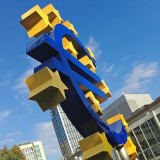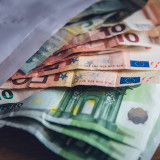Nationalism in EU
To solve the problem of nationalism political integration requires effective policies which can reduce inequalities among the various member states and the different social groups of European society.

The founders of the European Union wanted to put a stop to the unending violence and aggression that had scarred Europe’s long history. The idea pursued by the founders of the European peace project was as simple as it was brilliant: to interlink the economies of European nation-states and submit them to joint rules and controls to such an extent that no member could pursue selfish interests against another without harmful consequences.

Like the cultural differences among the various EU nations, religious differences are just another cleavage in a pluralist society and do not risk tearing the European Union apart, unless they overlap and are further reinforced by growing social cleavages and economic inequalities. Nationalism has always been a feature across Europe's political spectrum but there has been a recent boom in voter support for right-wing and populist parties. In part, voters are frustrated with the political establishment, but they also have concerns about globalization, immigration, a dilution of national identity and the European Union.

Typical example is Hungarian prime minister Viktor Orban and his Fidezs party. He secured a third term in office with a landslide victory in an election dominated by immigration. Mr Orban has long presented himself as the defender of Hungary against migrants, once warning of the threat of "a Europe with a mixed population and no sense of identity". He has said he wants the well-being and security of Hungarians first, a mirror of Trump’s “America First” message.

The European political project, whose founding idea remains far ahead of global politics, is essentially trapped in an unproductive contradiction between post-national development and a re-emergent nationalism, between shared politics and the national selfishness of the member states. something is obvious: Europe is infected with a disease of history. The disease of nationalism. Now the corona virus crisis will strengthen nationalism in Europe. It doesn't seem such a reckless theory: the big crises of the last two centuries have certainly had that effect. The reason for this phenomenon is obvious: a catastrophe generates fear, and nationalism presents itself as the ideal antidote.

Overnight, Russia launched a brutal war of aggression on Ukraine, an independent European nation. Two years after the start of the war, its negative effects have been far- reaching. European integration implies a complex pattern of loss and gain for different social groups, the more so at a time of economic crisis. Nationalism of the member states can easily become the ideology of those who think they have more to loose, mainly if it is instrumentally used by political demagogues. We have highlighted the difficulties EU is facing in taming unilateralism and protectionist instincts.
Quote
Patriotism is when love of your own people
comes first; nationalism, when hate for people
other than your own comes first.
--Charles de Gaulle